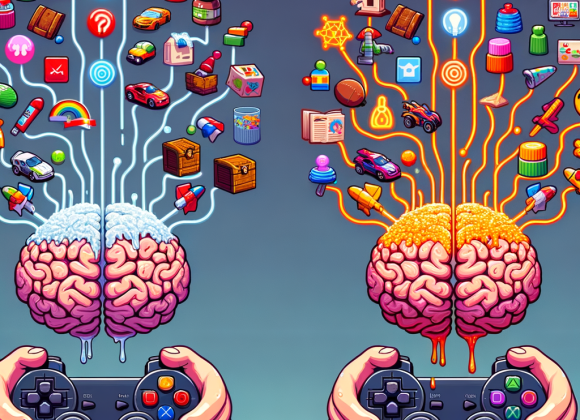When Game Results Spark Disputes: Let’s Dive In!
In the thrilling world of competitive gaming, the stakes are high, and emotions often run even higher. Every player dreams of victory, yet sometimes, that dream can be marred by disputes over game results. What happens when a player believes that the outcome of a game is unjust? Disputes can arise for various reasons, including technical issues, misinterpretations of rules, or even perceived misconduct by opponents.
When a player files a complaint about a game result, it can trigger a complex series of events. This process is crucial not only for the integrity of the specific game in question but also for the broader community of players. Disputes, while often seen as negative, can lead to improvements in gameplay standards, rules clarity, and more robust systems for ensuring fair competition.
Understanding the nuances behind these disputes is essential for anyone involved in competitive gaming. It’s not just about a single game; it’s about maintaining the spirit of fair play and sportsmanship that keeps players engaged and invested. As we dissect the complainant’s journey, we’ll uncover the multifaceted reasons behind disputes and the intricate process that follows.
As technology evolves, so too do the methods for addressing grievances. With online platforms accommodating millions of players, the complaints process must be responsive and efficient. This journey begins the moment a player questions a game result, prompting a deeper dive into the motivations and implications of their actions.
Ultimately, disputes can serve as a catalyst for positive change within the gaming community. By addressing player concerns, organizers can refine their rules and processes, establishing a stronger foundation for fair competition. So, let’s take a closer look at why players complain and how their voices shape the gaming landscape.
The Whys and Hows: Understanding Player Complaints
Players may dispute game results for numerous reasons, but let’s explore some of the most common motivations. First and foremost, technical difficulties often lead to complaints. Glitches, disconnects, or server issues can dramatically affect the outcome of a game. When players find themselves at a disadvantage due to these factors, it’s natural for them to voice their concerns.
Another significant reason is the interpretation of rules. Competitive gaming is built on a framework of rules, and sometimes, players have differing viewpoints about how these rules should be applied. A player may believe that their opponent breached a rule, leading to an unfair advantage. This perception of injustice can be the catalyst for a formal complaint.
Moreover, player misconduct can also trigger disputes. Actions like trolling, unsportsmanlike behavior, or cheating can overshadow the integrity of the game. When players feel that their opponents are not adhering to the spirit of competition, they might feel compelled to dispute the game’s result.
Players also complain because they care deeply about the game. Each player invests time, effort, and passion into their craft, and when an outcome feels unjust, it’s disheartening. This emotional investment drives players to speak up, ensuring that their voices contribute to a fairer playing environment.
Lastly, player disputes can stem from community standards. In competitive gaming, players often look to establish a culture of fair play. When disputes arise, they reflect the community’s values and expectations, ultimately leading to discussions about what is deemed acceptable behavior.
| Reason for Dispute | Description |
|---|---|
| Technical Issues | Glitches or server problems affecting gameplay |
| Rule Interpretation | Differing views on how rules should be applied |
| Player Misconduct | Unsportsmanlike behavior or cheating |
| Emotional Investment | Players’ attachment to fair outcomes |
| Community Standards | Reflecting the values of the gaming community |
A Peek Behind the Curtain: The Complaints Process Unveiled
Once a player decides to dispute a game result, the complaints process kicks into gear. Each gaming platform typically has a designated system for submitting grievances. Players may be required to fill out a formal complaint form or use an in-game reporting feature. This initial step is crucial, as it sets the stage for the entire process.
After a complaint is submitted, it often goes through a triage phase. In this phase, the complaints team assesses the validity of the grievance based on the submitted evidence. Players might be asked to provide screenshots, match IDs, or video recordings to substantiate their claims. This stage is key for filtering out frivolous disputes and focusing on those that warrant further investigation.
If the complaint is deemed valid, it moves forward to a thorough review. A dedicated panel or committee, often consisting of experienced players or moderators, will analyze the evidence presented. They’ll take into account the rules of the game, relevant circumstances, and any historical precedents to make an informed decision.
The next step involves communicating the findings to the involved parties. This may include informing the accused player and giving them a chance to respond. Transparency is critical during this phase, as it ensures that all players feel heard and respected throughout the process.
Finally, after careful deliberation, a resolution is reached, and the parties are notified. Depending on the outcome, the resolution could range from upholding the original game result to issuing a rematch or penalties against the offending player. The final decision is often documented to maintain a record and guide future disputes.
With this structured approach, gaming platforms strive to ensure fairness and integrity in their competitive environments. The process may seem lengthy, but it reflects a commitment to resolving disputes justly, ensuring that all players have a positive gaming experience.
From Grievance to Resolution: The Journey Explained
The journey from a grievance to resolution can be an emotional rollercoaster for players. Initially, the excitement of competition is met with disappointment when a player feels wronged. However, the process of addressing that grievance can foster a sense of empowerment. Players become advocates for their own rights, learning to navigate the complexities of the complaints process.
Once a complaint is filed, players often experience a mix of anticipation and anxiety. They may wonder whether their evidence is compelling enough or whether their concerns will be taken seriously. This period can be challenging, especially for competitive individuals who invest their hearts into every match.
As the review progresses, players may engage in discussions with their fellow competitors or community members. Sharing experiences can provide support, reassurance, or even new perspectives. It can also help players manage their emotions, reminding them that disputes are a common occurrence in competitive settings.
When the resolution is finally communicated, responses can vary widely. Players may feel relief, frustration, or even vindication, depending on the outcome. Regardless, this moment often serves as a learning experience. Players reflect on what they could have done differently or how they can better prepare for future competitions.
Moreover, resolutions can lead to broader conversations within the gaming community. When disputes are resolved, players often discuss the implications of the findings, prompting dialogue about the effectiveness of current rules or systems. This feedback loop can drive changes, ultimately benefiting the entire community.
At the end of this journey, players may emerge not only with a resolution but with a deeper understanding of their role in advocating for fair play. This newfound awareness contributes to an evolving landscape of competitive gaming, where players can actively shape their experiences.
Players Speak Up: The Importance of Fair Play
In the realm of competitive gaming, the importance of fair play cannot be overstated. Players who speak up about disputes help to establish standards that everyone can rely on. By voicing concerns, players not only advocate for their own rights but also contribute to the collective well-being of the gaming community.
Fair play is essential for maintaining trust among players. When individuals feel that they can compete in an environment governed by fairness, it fosters camaraderie and mutual respect. This sense of community is paramount, as it encourages players to support one another in both victories and defeats.
When disputes arise, it’s an opportunity for players to hold each other accountable. By challenging unfair practices, players promote a culture where ethical behavior is valued. This advocacy leads to healthier competition and a more enjoyable gaming experience for all.
Furthermore, the act of speaking up can inspire others. Players who witness their peers challenging unjust outcomes may feel empowered to do the same. This ripple effect can strengthen the commitment to fair play across the entire gaming ecosystem, fostering a culture of accountability.
In addition, when complaints lead to clear resolutions, it demonstrates that the community is willing to adapt and improve. Players see that their voices matter, encouraging them to continue engaging in discussions about rules and conduct. This ongoing dialogue can lead to enhancements in gameplay standards that benefit everyone.
Ultimately, players who advocate for fair play help to create an environment where everyone can enjoy the thrill of competition without the shadow of injustice looming overhead. Their voices contribute to a vibrant community where respect, integrity, and sportsmanship reign supreme.
Celebrating Resolution: Turning Disputes into Harmony!
As disputes are resolved, it’s time to celebrate the successful navigation of the complaints process. While the road to resolution may have been fraught with tension, the outcome often leads to a renewed sense of community among players. When grievances are aired and addressed, they transform from discord into opportunities for growth.
Players who actively participate in the complaints process contribute to a culture that values dialogue and respect. This shared experience fosters a deeper bond among competitors, reinforcing the idea that fairness is a collective responsibility. Celebrating these moments can galvanize the community, reinforcing the idea that players are not alone in their pursuit of equity.
Once a resolution is reached, players often share their experiences with others. Through social media or community forums, they highlight the importance of speaking up and provide guidance for others who may face similar challenges. This sharing of knowledge can empower new players, helping them navigate the complexities of competitive gaming with confidence.
Moreover, celebrating resolutions extends beyond individual cases. It provides an opportunity for gaming organizations to evaluate their processes and make necessary adjustments. By recognizing the effectiveness of the complaints process, they can implement changes that streamline future disputes and enhance player experience.
This celebration of resolution can also manifest in organized events or discussions, where community members come together to discuss best practices and improvements. These gatherings nurture a sense of belonging, reminding players that they are part of a larger movement committed to fair play and integrity.
As disputes turn into harmonious resolutions, the gaming community emerges stronger and more united. Players are not just competitors; they are advocates for a just environment where everyone can enjoy the thrill of competition without fear of unfair outcomes.
Q&A Section
Q: What should I do if I want to dispute a game result?
A: Start by reviewing the specific complaints process for the gaming platform. Gather evidence, such as screenshots or match recordings, and submit your complaint through the designated channels.
Q: How long does it typically take to resolve a dispute?
A: The duration can vary based on the complexity of the complaint, but most platforms aim to provide a resolution within a few days to a week.
Q: Will my complaint remain anonymous?
A: Many platforms respect player privacy, but it varies by organization. Check the specific policies regarding anonymity.
Q: Can I appeal a decision made during the complaints process?
A: Yes, most platforms have an appeal process in place for players who wish to contest the initial decision.
Q: What if I don’t agree with the outcome of a dispute?
A: If you feel the resolution is unjust, review the appeal options available on the platform to express your concerns and seek further clarification.
Q: How can I promote fair play within my gaming community?
A: Champion open discussions about rules, encourage reporting of misconduct, and lead by example by demonstrating good sportsmanship and respect for all players.




